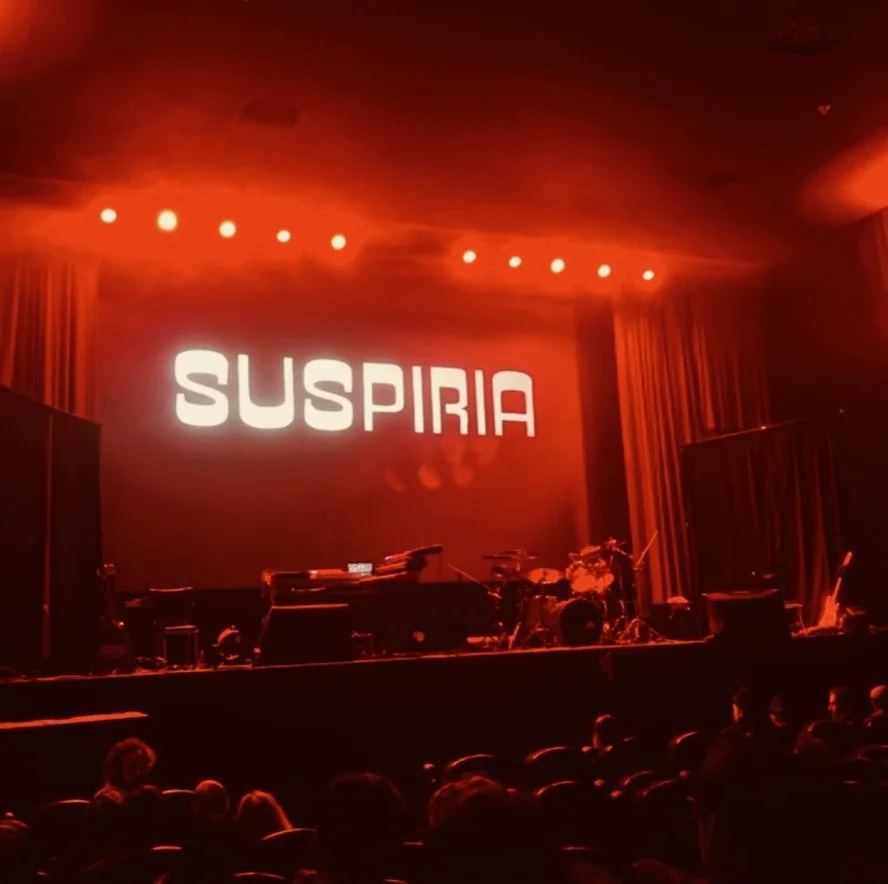A Night of Sonic Sorcery: Claudio Simonetti’s Goblin Brings Suspiria to Life at the Rio Theatre
By Maddy Cristall
There are rare nights in cinema that remind you why you fell in love with movies in the first place, why the smell of popcorn, the hush of the lights dimming, and the slow build of a film’s opening notes can still feel like ritual. Claudio Simonetti’s Goblin performing their legendary score to Dario Argento’s Suspiria (1977) live at Vancouver’s Rio Theatre was one of those nights, a transportive, sensory feast that blurred the line between film screening and concert experience.
From the first eerie chime of Goblin’s unmistakable theme, it was clear this was more than a movie. It was a living, breathing collaboration between image and sound, a rare chance to witness a film’s iconic score performed in real time by the very band that wrote it nearly half a century ago. Goblin, the Italian progressive rock pioneers whose work with Argento shaped the soundscape of horror, played with the same precision, theatricality, and intensity that first defined them in the 1970s. Watching Simonetti and his band summon those ominous, pulsating rhythms live while Suspiria unfolded in gloriously restored 4K on the big screen was nothing short of hypnotic.
The experience was a full celebration of the senses. Argento’s masterpiece, with its saturated reds and blues, surreal sets, and dreamlike logic, has lost none of its power. The story of Suzy Bannion (Jessica Harper), a young dancer who arrives at a German ballet academy only to uncover a coven of witches, remains as unsettling and visually dazzling as ever. Seen this way, with Goblin’s music swelling, whispering, and shrieking live in perfect sync, the film becomes something entirely new: immersive, theatrical, and almost operatic in its emotional weight.
The magic did not end when the credits rolled. As a special encore, Simonetti’s Goblin returned for an additional 45-minute performance, a thrilling retrospective of their greatest works accompanied by a cinematic montage of the many films they have scored, including Deep Red, Dawn of the Dead, Tenebrae, and Demons. It was a reminder of how deeply their sound has influenced the horror genre and how much their music has shaped the atmosphere of some of cinema’s most iconic moments.
The Rio Theatre, with its vintage charm and passionate cinephile energy, proved to be the perfect setting for an event like this, a space where film is not just watched but felt. Nights like this are a rare gift, a chance to slow down, to sit in the dark, and to let art wash over you in a way that modern streaming culture often robs us of. It was a celebration not only of a film and its music but of the kind of communal, sensory experience that makes cinema so endlessly vital.

